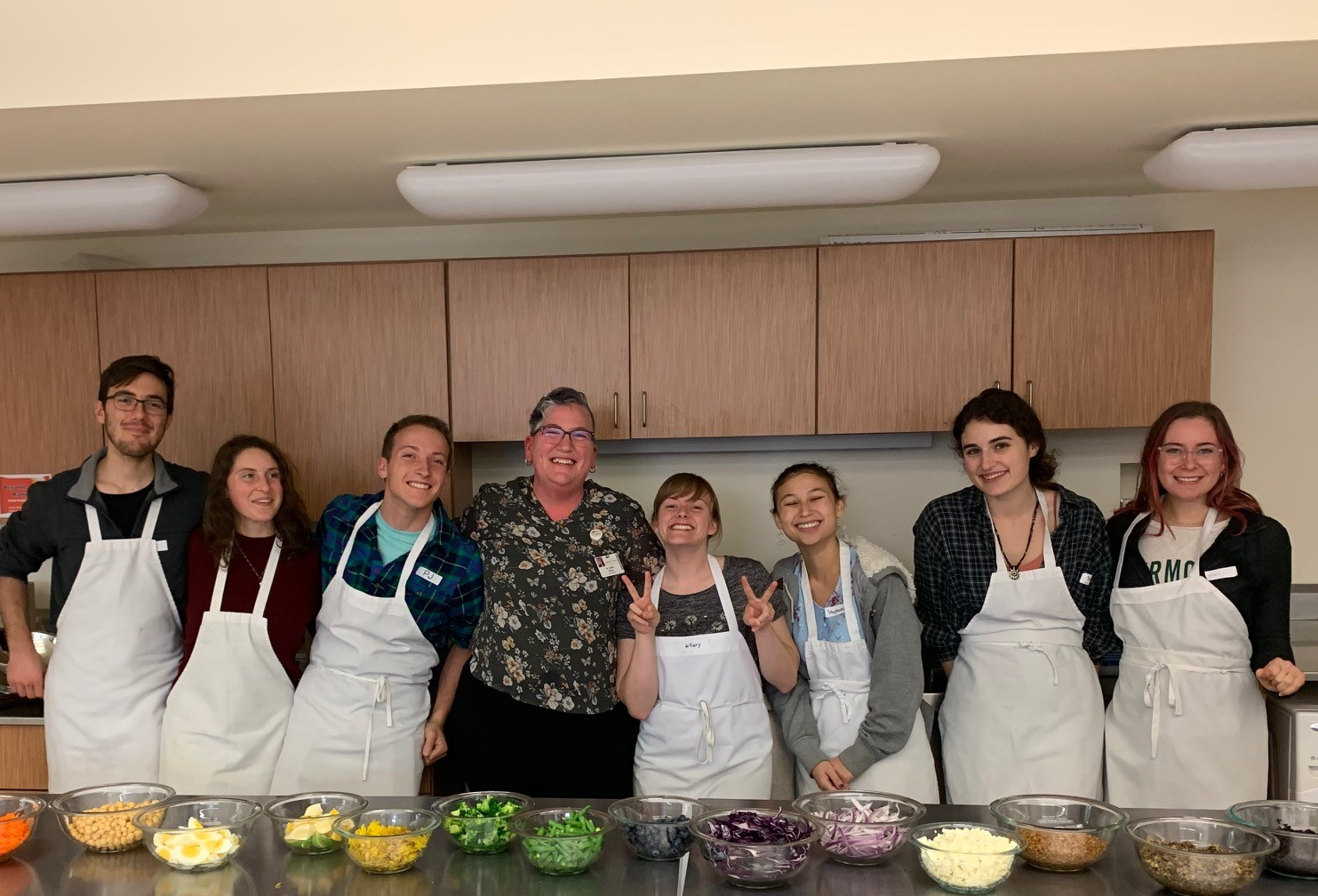
Non-Credit Courses
- Culinary Nutrition (Spring/Summer/Fall): Culinary Nutrition combines the wellness and technical sides of food – introducing students to the culinary concepts central to the disciplines of nutrition, food science, cooking skills, and sensory analysis. Students are introduced to these concepts through the process of meal preparation, meal sharing, and sensory analysis of the final product. The complex variety of meal preferences and preparation techniques among three key palate types is integrated throughout the course to introduce students to techniques they can use to prepare nutritious meals for diverse tastes. This is a 4-week online course intended for health professionals who deliver education emphasizing skills such as meal preparation as well as anyone interested in improving the way they eat through developing their culinary skills. A major goal of this course is to have the student be able to apply these concepts not just in the classroom, but in their home and work settings as well. Find out more and register here.
- John Dewey Kitchen Institute (Summer): The University of Vermont offers a 3-day, on-campus workshop – the John Dewey Kitchen Institute – and applies John Dewey’s philosophy into our kitchen lab, as a way to emphasize experiential education, as an important pedagogical approach for teaching any subject.The class draws from John Dewey’s philosophy of education and epistemology (theory of knowing) to inspire and guide our work together. The in-kitchen workshop includes hands-on cooking and enjoying 3 meals, beer and wine tasting. Prior to the start of the workshop, you will gain access to online resources where you can connect with fellow participants and review Dewey’s tenets, philosophy, and practices. Find out more and register here.
Credit Courses
- Basic Concepts of Food (Spring/Fall): This course introduces students to the basic concepts of food central to the disciplines of nutrition, food science and food systems. Students are introduced to these basic concepts through the process of meal preparation. Thus, concepts and practices are always considered as interconnected. Students will also be introduced to the practice of sensory analysis and will learn to pay closer attention to the fine sensory details of a meal. Finally, a major goal of this course is to have the student be able to understand and use these concepts not just in the classroom but in their home and work settings.
- Cooking for Health (Fall): This course introduces students to different strategies and important concepts involved in developing a lifetime practice of cooking balanced, healthy meals. The course will consider nutrition holistically, learning how to prepare balanced, well-rounded meals and empowering students to feel confident in the kitchen and in their own definition of “healthy food”. Students are introduced to these strategies and concepts in the same way as everyday Americans – through the process of meal preparation. Thus, concepts and practices are always considered as interconnected. The complex variety of meal preparation practices, among diverse populations in the United States is integrated throughout the course. Finally, a major goal of this course is to have the student be able to understand and use these concepts not just in the classroom but in their home and work settings.
- Sustainable Cooking (Spring): This course introduces students to different strategies and important concepts involved in developing a lifetime practice of sustainable cooking. The course will consider the social, environmental and economic pillars of sustainability. How can we develop sustainable cooking practices? What are the most important variables in developing a sustainable cooking practice? Low carbon emissions? Vegetarian diets? Local purchasing? Students are introduced to these strategies and concepts in the same way as everyday Americans – through the process of meal preparation. Thus, concepts and practices are always considered as interconnected. Finally, a major goal of this course is to have the student be able to understand and use these concepts not just in the classroom but in their home and work settings.
- Culinary Nutrition (Spring): Culinary Nutrition combines the wellness and technical sides of food – introducing students to the culinary concepts central to the disciplines of nutrition, food science, cooking skills, and sensory analysis. Students are introduced to these concepts through the process of meal preparation, meal sharing, and sensory analysis of the final product. The complex variety of meal preferences and preparation techniques among three key palate types is integrated throughout the course to introduce students to techniques they can use to prepare nutritious meals for diverse tastes.
- Kitchen Science (Spring): Integrated lecture-lab course that explores the scientific concepts underlying why foods do what they do in the kitchen. Applications include topics such as ice cream, gluten, and molecular gastronomy. Labs and final project provide opportunities to design, conduct, and evaluate experiments investigating culinary phenomena.
Interested in Learning More?
To learn more about our classes you can visit the UVM course catalogue or contact Emily Barbour (ebarbour@uvm.edu)